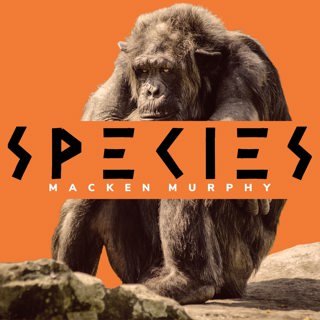
Remora
How do suction cups work? Did Caligula get murdered due to remoras? Are remoras good or bad for their hosts? Find out on this episode of Species. Bibliography: https://docs.google.com/document/d/1y30oSBdF0feRKLpSOVYBZ3PFlHtqSaQ9u25dqBwaPCY/edit?usp=sharing
27 Joulu 202023min

Tiger
Who is the most prolific serial killer of all time? How do ligers get so big? Why do tigers have stripes? Find out everything you could possibly want to know about tigers on this episode of Species. Bibliography: https://docs.google.com/document/d/1LUBGGbhJOwxTaDOFzYehXlOF87OTSEA74HnPwbiSlgc/edit?usp=sharing
21 Joulu 202020min

Diabolical Ironclad Beetle
This insect can survive being run over by a Toyota Camry. Here's how... Bibliography: https://docs.google.com/document/d/1-HFHQ9iJgTHDQKs8Tl3SzVZYrs2g7KzaRnkuqaEAork/edit?usp=sharing
14 Joulu 202020min

Cuckoo
Why do women cheat? Why do cuckoos cosplay as hawks? Why did the merry men of Gotham think they could bring about an endless summer by trapping a cuckoo? Find out the answer to all these why's and more on this episode of species. Bibliography: https://docs.google.com/document/d/1807zyPxfAHbTXqCG6t8J7XfeD4RTUotfrTU3GUaD9h4/edit?usp=sharing
7 Joulu 202023min

Bristlemouth
How do you measure success in the fight for survival? What is the most common vertebrate on earth? Which traits are most useful to an animal's abundance? Get your answers to all these questions and more on this episode of Species. Bibliography: https://docs.google.com/document/d/1f02h0cboM7oO7-4h31uhsqH07QgUPmr0uFDIpUspv1o/edit?usp=sharing
30 Marras 202014min

Zebra
Why do zebras have stripes? Why don't people ride zebras? Why do zebras kill their babies? Find out on this episode of Species. Bibliography: https://docs.google.com/document/d/1Gvcojy4USerYBMmrEP-co3R0mEcQgSAROqhiBFxiTtA/edit?usp=sharing
23 Marras 202018min

Docility and the Death Penalty | Dr. Richard Wrangham
Dr. Richard Wrangham's book, The Goodness Paradox, argues that we humans inadvertently domesticated ourselves using the death penalty. In this conversation, we discuss the evidence supporting this hypothesis, the radical implications that follow from it, and a whole host of other topics, including morality, religion, patriarchy, psychopathy, and drug use in chimpanzees. Richard is Harvard University's Ruth B. Moore Professor of Biological Anthropology, he is founder of the Kibale Chimpanzee Project, co-founder of the Kasiisi Project, and patron of the Great Apes Survival Partnership. He is the author of three influential books, Demonic Males, Catching Fire, and his newest book, The Goodness Paradox, which we recommend you read: https://www.amazon.com/Goodness-Paradox-Relationship-Violence-Evolution/dp/1101970197/ref=sr_1_1?crid=20C3Z9TAHH4UK&dchild=1&keywords=the+goodness+paradox+richard+wrangham&qid=1605904298&s=books&sprefix=the+goodness+pa%2Cstripbooks%2C180&sr=1-1
20 Marras 20201h 33min

Emerald Cockroach Wasp
It's good to be afraid. Come learn about the woman who can't feel fear, the roaches who are rendered fearless and the wasp who makes it possible. Warning: This podcast is not for the faint of heart. Bibliography: https://docs.google.com/document/d/1su0d1qEn6P_JcjtyIMIZeNNXKOlUVcilBpV-SfQSx7A/edit?usp=sharing
15 Marras 202017min




















